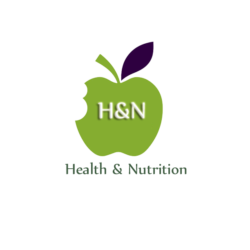Vitamins Women Need: Essential Nutrients for Every Stage of Life 2025
Introduction
Maintaining optimal health isn’t just about regular exercise and a balanced diet — it’s also about ensuring your body gets the right vitamins. Women, in particular, experience different nutritional needs at various stages of life, from adolescence to pregnancy to menopause.
In this guide, we’ll explore the essential vitamins women need to stay strong, energized, and vibrant.

1. Vitamin D: The Bone Protector
Why It’s Important:
Vitamin D helps the body absorb calcium, promoting strong bones and teeth. It also plays a critical role in immune function and mood regulation.
Sources:
- Sunlight exposure
- Fatty fish (salmon, mackerel)
- Fortified dairy products
Tip: Many women are deficient in Vitamin D, especially during winter. A supplement might be necessary.
2. Vitamin B12: The Energy Booster
Why It’s Important:
Vitamin B12 is essential for energy production, red blood cell formation, and neurological function.
Sources:
- Meat and poultry
- Eggs
- Fortified cereals
Tip: Vegetarian and vegan women are more prone to B12 deficiency and should consider supplements.
3. Folate (Vitamin B9): The Pregnancy Essential
Why It’s Important:
Folate supports cell growth and is crucial during pregnancy to prevent birth defects.
Sources:
- Leafy greens (spinach, kale)
- Citrus fruits
- Beans and legumes
Tip: Women of childbearing age should ensure they’re getting enough folate, even before pregnancy.
4. Vitamin C: The Skin Saver
Why It’s Important:
Vitamin C acts as a powerful antioxidant, boosts immunity, and helps with collagen production, keeping the skin youthful and radiant.
Sources:
- Oranges
- Strawberries
- Bell peppers
Tip: A glass of fresh orange juice daily can significantly boost your Vitamin C intake!
5. Vitamin E: The Anti-Aging Warrior
Why It’s Important:
Vitamin E protects skin cells from oxidative stress and supports immune function.
Sources:
- Nuts and seeds
- Vegetable oils
- Spinach and broccoli
Tip: Vitamin E is also great when used topically for skin moisturization.
6. Calcium: Partner of Vitamin D
Why It’s Important:
Calcium is critical for bone health, muscle function, and cardiovascular wellness.
Sources:
- Milk and dairy products
- Almonds
- Leafy green vegetables
Tip: Women over 50 should increase calcium intake to prevent osteoporosis.
7. Iron: The Oxygen Carrier
Why It’s Important:
Iron is vital for producing hemoglobin, which carries oxygen in the blood. Women are at a higher risk of iron deficiency due to menstruation.
Sources:
- Red meat
- Spinach
- Lentils
Tip: Pair iron-rich foods with Vitamin C-rich foods to enhance absorption.
How to Choose the Right Vitamin Supplement
While getting vitamins from natural food sources is best, supplements can fill nutritional gaps. When choosing a multivitamin or specific supplement:
- Check for certified brands.
- Opt for products without unnecessary fillers.
- Tailor supplements to your age and health needs.
- Consult your doctor, especially if you have underlying conditions.
FAQs about Vitamins Women Need
Q1. What vitamins are most important for women over 40?
A1. Vitamin D, Calcium, Vitamin B12, and Vitamin E are particularly crucial for bone strength, energy, and hormonal balance after 40.
Q2. Can women get all the necessary vitamins from food alone?
A2. Ideally, yes. But due to modern lifestyle and soil depletion, supplements are often recommended to cover nutritional gaps.
Q3. How do I know if I am vitamin deficient?
A3. Symptoms like fatigue, brittle nails, hair loss, and frequent infections can signal deficiencies. A blood test is the most accurate way to know.
Q4. Are there specific vitamins for women’s skin health?
A4. Yes! Vitamins C, E, and A are fantastic for maintaining youthful, glowing skin.
Q5. How often should women take vitamin supplements?
A5. It depends on individual health needs. Some may require daily intake, while others might need periodic boosts.
Understanding the vitamins women need is essential for maintaining energy, preventing disease, and aging gracefully.
Whether through a well-balanced diet or carefully chosen supplements, ensuring you meet your daily vitamin needs is an investment in your long-term health.




